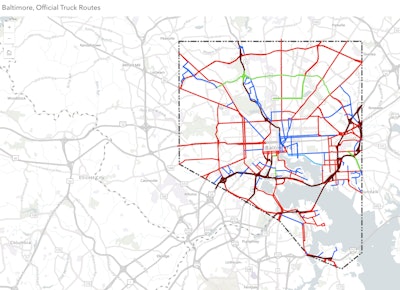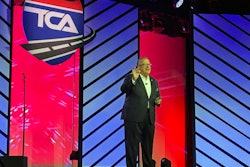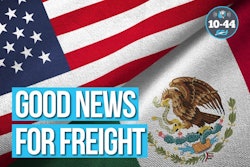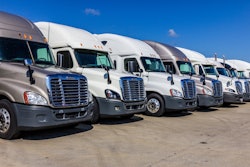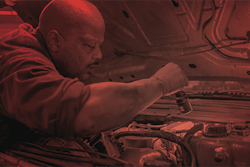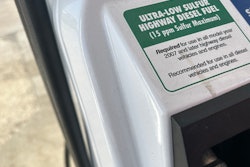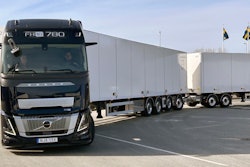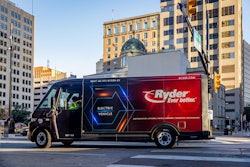A cargo ship, which early investigation seems to point toward having lost power, struck the Francis Scott Key Bridge in the early morning hours Tuesday, sending the 1.6 mile section of Interstate 695 into the Patapsco River and presumably killing six construction workers. Almost 5,000 trucks crossed the bridge daily.
The Port of Baltimore is closed to ship traffic but the port is still processing trucks. Baltimore is the third largest port for the import/export of construction equipment, having handled $6.58 billion last year, and is the largest import/export site for farm equipment and finished passenger vehicles in the country. Baltimore accounts for more than 50% of large farm tractor exports and is a major port of entry for primary metals like unwrought tin, refined lead, unwrought nickel, and unwrought zinc.
[Related: Baltimore bridge collapse puts low-clearance tech in focus]
Autos and light trucks accounted for $23 billion in imports to Baltimore last year. Construction machinery follows at $5 billion, then nonferrous metals excluding aluminum; agricultural implements; aluminum; iron and steel; material handling equipment; and other general purpose machinery, noted Jason Miller, Interim Chairperson and Professor of Supply Chain Management at the Eli Broad College of Business at Michigan State University.
Miller said rerouting containerized imports should generally be possible given Baltimore is not a major container port (13th largest), but there would almost certainly be challenges finding a spot for much of the roll-on/roll-off specialized cargo that flowed through there – namely the construction machinery and farm equipment – creating "some interesting strains for long-distance equipment and machinery haulers," and having implications for prices for the equipment hauling sector of trucking. Brunswick, Georgia, 700 miles south, is the second-largest roll-on/roll-off port. Other options include Jacksonville, Miami, Norfolk and Philadelphia.
"I see this as having a much greater impact on the specialized freight sector of trucking," Miller said. "For example, what are auto haulers who serve the Port of Baltimore going to do? My guess is most of those moves are either within the Metropolitan Statistical Area or trips that are just a few hundred miles."
